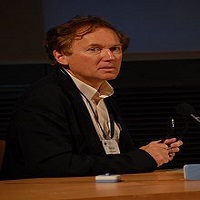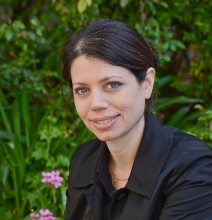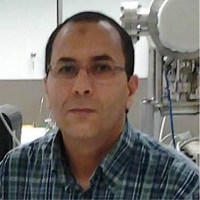Scientific Program
Keynote Session:
Oral Session 1:
- Organ-on-a-Chip Applications for Drug Discovery and Toxicity Screening
Title: Microfluidic stories: testing, clogging, particle synthesis
Biography:
Patrick Tabeling is Professor at the « Ecole Supérieure de Physique et de Chimie Industrielle de la Ville de Paris. He is the Director of the Microfluidics, MEMS and Nanostructures at the Pierre Gilles de Gennes Institute for microfluidics in Paris (https://www.institut-pgg.com/) . He is the author of 200 peer reviewed articles and of the book Introduction to microfluidics.
Abstract:
In the present confusion on the question of COVID testing, paper microfluidic may very well change the game, by offering new outstandingly performing, portable, cheap, virologic tests. In another topics, the reason why, in general, particles clog small channels is now much better understood, thanks to studies performed in microfluidic systems. Interestingly, microparticles production in microdevices has much progressed over the years, and now, performances, in terms of throughput and quality, are interesting. I will show an example developed in the lab, concerning peptide delivery.
Title: Tumor-on-chip and nanofabrication for precision medicine in cancer
Biography:
Ofra Benny is the head of The laboratory for Nanomedicine and Tumor Microenvironment at the Institute for Drug Research, School of Pharmacy, and Faculty of Medicine in the Hebrew University. Prof. Benny’s lab focuses on cancer research and drug development. Her multidisciplinary lab works on developing novel nanomedicine tools for drug delivery specific for cancer and key components of the tumor microenvironment. Prof. Benny received her P.hD in Biotechnology Engineering from the Technion, and completed her postdoctoral in the leading lab of the late Prof. Judah Folkman, in the Boston Children’s Hospital, Harvard Medical School. Prof. Benny has several publications including in Nature Biotechnology and Science Advances. Her ERC funded project Mtrix introduced a novel concept in mechanical targeting of cancer cells by nanomaterials and is expected to lead to innovations in the field of personalized therapy in cancer. The project involves “tumor on chip” and microfabricated drug vehicles using 3D printed devices.
Abstract:
The overwhelming complexity of biological systems emphasizes the need to develop experimental models that are more physiologically relevant for testing drugs outside the body (ex-vivo), than those currently available. There is an unmet need to develop a predictive and reliable tools to evaluate the effectiveness of anti-cancer drugs. Such “oracle” could eliminate the loss of valuable time on treatment with ineffective drugs, and avoid the unnecessary suffering of cancer patients. Using microfluidics, we developed a “tumor on chip” system to maintain physiological like conditions, including the presence of components of the tumor microenvironment. In this system cancer cells are grown as 3-dimension spheroids so that their cell-cell and cell-matrix interactions resemble those found in the original tumor. Patient derived samples are grown and are exposed to various treatments to measure efficacy. Our preliminary data show that genetic profile of ex-vivo samples resemble the original tissue, and even provide a selection for rare mutations.
Title: Development of a diet-induced model for non-alcoholic steatohepatitis (NASH) and fibrosis in an organotypic spheroid-based liver-on-chip model
Biography:
Haysam Ahmed is an experienced biomedical researcher with an ultimate goal of assisting the development of more effective and safer drug/cellular therapies that can be used to treat patients. Throughout his career, Haysam has worked on various projects all aimed at addressing issues with dire need for innovative solutions such as skin grafts for burn patients, a bio-aritificial liver for liver failure patients, and most recently a non-alcoholic fatty liver disease model that faithfully recapitulated key aspects of the disease and helped identify a drug combination that can potentially treat that disease which affect millions globally.
Abstract:
Non-alcoholic fatty liver disease (NAFLD) is currently the most common form of chronic liver disease and may progress towards NASH associated with liver fibrosis, cirrhosis, and hepatocellular carcinoma. Despite ongoing efforts, there is no effective therapeutic treatment available for NAFLD-NASH. This is partly due to an incomplete understanding of disease mechanisms, relevant biomarkers and predictive preclinical models for drug screening. We therefore developed a disease-mimicking in vitro model which closely resembles the pathophysiology of liver fibrosis induced by lifestyle. In addition, we introduced microfluidic flow to our cell model to investigate the effect of homeostatic tissue perfusion versus conventional static culture conditions.
Title: The effect of pressure on system temperature of ZnO a molecular dynamics prediction
Biography:
Yahia CHERGUI is a lecturer in Electrical & Electronics Engineering Institute, Boumerdes Algeria. He has completed his PhD from Badji Mokhtar University in Annaba, Algeria. He did all his PhD work in Cardiff University in UK. His research field is Physics(condensed matter, simulation by molecular dynamics). He is a lecturer in Boumerdes University( Electrical & Electronics Engineering Institute) since 2012. He has many published articles and international conferences. He has been serving as a referee with condensed matter journal (IOP), Energy journal (Elsevier), and recently accepted to be a reviewer of American Journal of Modern Physics.
Abstract:
The technique of Molecular Dynamics simulation is used to analyze the effect of pressure on the system temperature of Zin Oxide using dl_poly_4 software. In order to analyze our data we use an extended range of pressure and temperature 0-200GPa and 300-3000K respectively, we study in this work the effect of low and high pressure on the system temperature, and its evolution in time where at high temperature and low pressure there is an oscillation of temperature around the equilibrium position.. The interatomic interaction is modeled by the Coulomb-Buckingham potential. Our data are in agreement with some available results due to no more work under the previous extreme conditions of pressure and temperature. This work has great importance in pharmacy, medicine, nanotechnology industry and in geophysics, but needs confirmation in future.





